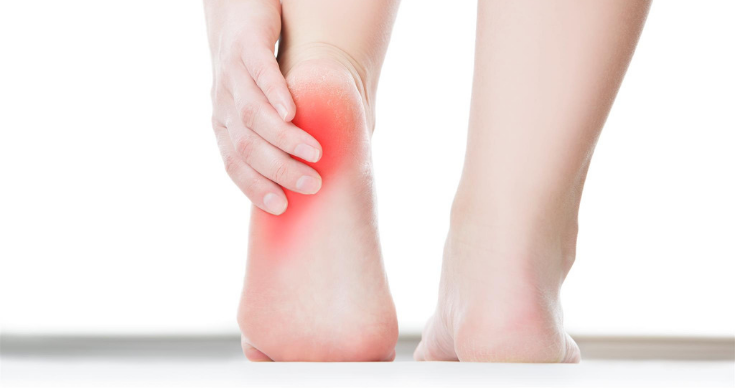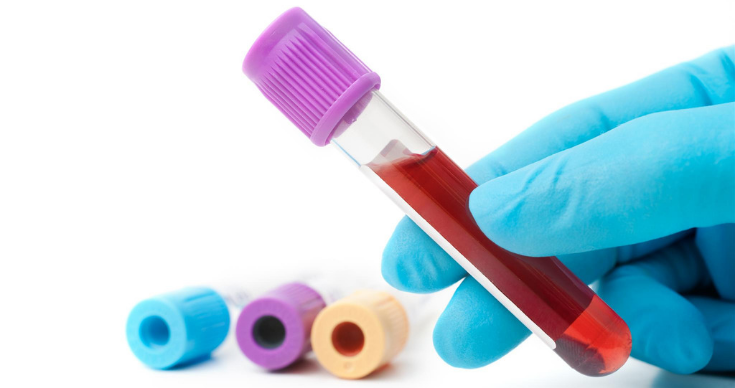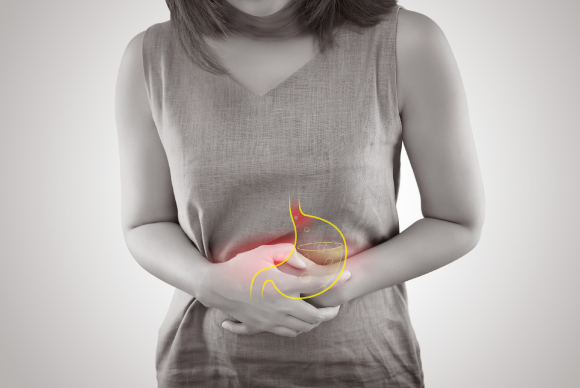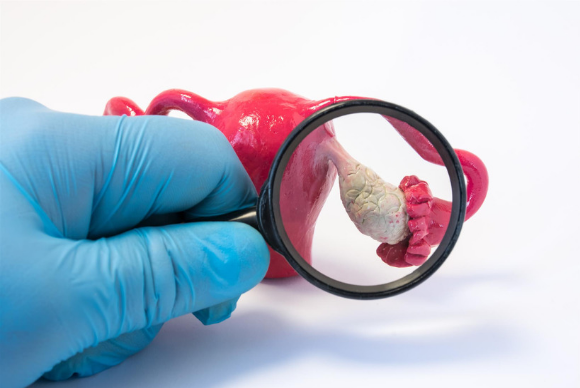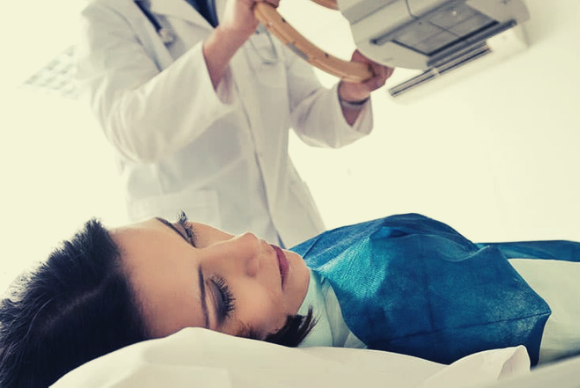8 Tips To Stay Healthy During The Festival Season
It is the festive season, the month we all wait for every year. This is the time when we get to enjoy the most with our family and friends. But if during this time anyone gets sick, then all plans are bound to go down the drain. So, ILS Hospitals in Kolkata is going to give you tips on how to stay healthy and disease-free during this time.
-
Over the last few years, the rain has been an ever-present factor in the festival season especially before diwali, which also makes it easy for diseases like malaria and dengue to fester. So use mosquito repellent when going out and a net when going to sleep.
-
Viral infections like cough, cold, and fever are also very common during this season. Don’t drink cold water or cold drinks after coming from outside. Try to avoid them as much as possible, even at home. This will prevent you from getting infected with a cold infection. Especially at late night, the temperature falls and the chances of getting a cold increase. So try to avoid cold drinks, ice-creams etc. at night.
-
While going out during the day, make sure to carry an umbrella, sunglass and sunscreen with you at all times, or you may get sun-burned badly.
-
When burning crackers during Diwali, take extra precautions against any accidental burning. Be careful about smoke and loud noises specially for the children and aged individuals.
-
Eating out during the festive season is very common and half the enjoyment is in that only. So as we cannot completely avoid eating out but rather can eat wisely. Most roadside stalls are not much healthy, so choose wisely from where you are eating. If possible, carry water from home before going out.
-
It’s also a holiday time and we like to go out more as well. Going out every day during the festive season can make one tiresome, drenched out of energy and make feel thirsty. If possible carry lemonade or ORS with you. This would help to restore the electrolyte imbalance of the body.
-
If you are going out at night then make sure that you get enough sleep during the day as good sleep is important for the body. Also, staying awake at night is not good for small children and the aged individuals. So, make sure that they get their proper sleep.
-
Try to avoid the crowd if you are an asthma patient or this may aggravate your problems and may sustain attacks of asthma. Diabetes patients should continue their diabetes treatment as usual during this time and limit eating sweets as well, especially when it can be tempting once you get so many sweet boxes from your neighbors on Diwali.
Follow these tips to stay healthy and have a great Diwali and a festive season ahead.
Common Gynecological Problems Faced by Women of Different Age Groups
Aging is a natural progression for both men and women and it helps them acquire new experience and expertise. However, it also brings new challenges to health-wise. Today, we are going to discuss what gynecological problems women go through, at different phases of life.
Gynecological Problems During Adolescence
1. Delayed Puberty
There is no fixed to start having periods, but if it does not starts by the age of 11, it is best to seek a doctor. Though many young girls start having a period at the age of 14 or so, lack of periods can also happen due to the absence of uterus, by birth. An expert gynecologist can verify the same and advice accordingly.
2. Menstrual Disorder
There can be several types of issues with the menstrual cycle. Heavy periods, scanty periods and irregular periods are most common. Mostly it can be addressed well with a healthy diet, active lifestyle and taking adequate rest in between. However, it is still best to keep track of it and seek consultation from a gynecologist.
3. White Discharge
Though white discharge is very common among women of childbearing age, it can be a bit heavy and troublesome for young girls. Maintaining proper hygiene is required, along with doctor’s advice, if needed.
4. Abnormal Facial Hair
During a young age, many young girls develop facial hair due to hormonal disbalance, which can be devastating for her self-image. Often it gets better with age, but still, it is wise to seek an expert opinion, cause many a time, it does require treatment to fix it.
Gynecological Problems During Adult Age
1. Infertility
The inability to have a successful natural conception or to carry a pregnancy is termed as infertility. Often it is due to some lifestyle factor such as smoking, overweight which can be resolved. However, infertility often occurs due to some more severe hormonal or gynecological conditions, which requires extensive fertility treatment from expert doctors.
2. PCOS
Polycystic Ovary Syndrome (PCOS) is one of the most common hormonal issues among women of childbearing age. It becomes more prominent and problematic during this phase. It starts to interfere with everyday life and other gynecological aspects of the body. Thankfully, it can be treated effectively with medication, lifestyle change, and surgery, if required.
Read more: 5 Facts About PCOS Every Women Should Be Aware Of
Gynecological Problems During Later Age
1. Menopause
It is the natural decline and eventually cessation of reproductive life. Though it is inevitable for every woman, it brings a hard time for many women, either physically, or emotionally, or both. It can be easily treated and thus, women should consider it if they feel they need help.
2. Gynecological Cancer
Gynecological cancers are yet another problem among older age grouped women. Cancer of Breasts & Uterus is more commonly diagnosed in older women as compared to the younger groups. Often it is due to aging and sadly, many a time, it is because of ignoring symptoms of the same for years. Either way, it should be treated form an expert gynecologist or oncologist at the earliest.
All the women are advised to keep track of their health routine, especially after attaining puberty. Availing well-women health check-up package once every 2-3 years is an excellent way of ensuring the same. Seek medical help if any alarming symptoms appear. Stay healthy, and always remember-
“There is a pain in being a woman, yes, but there is pride in it, too”.
-Mary Pauline Lowry
Most Common Diabetic Foot Conditions You All Need To Know About
Diabetes is one of the most widespread diseases in today’s world. Diabetes clinics, all around the world are addressing hundreds of new diabetes patients each year and the number is rising at an alarming rate. Needless to say, having a timely diabetes treatment is quite crucial, as many of you must be aware that untreated (or poorly managed) diabetes can lead to many complications like damage to eyes, kidneys, skin, nerves along with causing cardiovascular conditions and hindrance in the natural healing process. Today, we are going to discuss one particular condition, the diabetic foot.
Diabetic foot is an umbrella term for the foot conditions that arise due to prolonged diabetes. Let’s list out some of the most common conditions related to the foot that is caused by diabetes.
Diabetic Neuropathy
This causes numbness and loss of sensation in the feet, particularly in the extremities. Eventually, it leads to nerve damage and makes the person unaware of having wounds, infections, irritation, blisters or sore in their feet. Often it happens, that people become unaware of the facts that they are wearing tight shoes or if the shoes are rubbing.
It left unaddressed for long, it leads towards having gangrene and ends up needing an amputation.
Peripheral Vascular Disease
Prolonged diabetes affects the structure and function of the blood vessels. In peripheral vascular disease, the fat starts to get decomposed on the blood vessels reaching hands and feet. As a result, the adequate blood supply to the feet gets hampered and results in pain and infections. If left unresolved, it too can lead to foot amputation in the future.
Athlete’s Foot
It is a fungal infection that leads to cracking of foot skin while making it red and itchy as well. If left untreated, germs can enter through the crack skin and spread infection. Thankfully, it can be easily treated with topical creams and oral medicines.
Foot Calluses
It is the hard skin build upon the underside of the foot. It often occurs due to uneven bodyweight distribution, poorly fitted footwear, prolonged diabetes or some underlying skin condition. Wearing footwear with padding and using a pumice stone to remove calluses regularly is a big help. However, one can consider taking medicine to address it effectively as well.
Foot Corn
It is a hard skin build-up either between toes or on a bony area of the underfoot. It may also happen due to uneven pressure distribution on the foot. It happens mostly on dry skin, due to friction between toes or because of the shoe. Using any sharp object to remove them forcefully is highly unadvised. Instead, proper medication is more useful for the same.
Diabetic Foot Ulcers
Diabetes makes the healing process quite slow, and any cut or injury in the foot can often lead to infection. Diabetic foot ulcers are the condition in which the skin breaks deep on the underfoot. It eventually scrapes out the flesh and if left untreated for long, it keeps on causing damage heavily to the foot.
In case you are suffering from diabetes for a long period and encountering some foot condition, get in touch with our expert diabetic foot specialist to get quality treatment and care.
Watch Out For These Monsoon-Related Health Issues And Few Precautions
The rain is pouring all around us. Sometimes, it is drizzling while sometimes it is raining hard. Though monsoon beings many joys, it also brings many health hazards. Many gastroenterology clinics note a rise in digestive illness around this time. It is not uncommon for people to have more sick leaves during this period of time. In fact, a sharp increase in patients can be seen in every best hospital during monsoon. Today, we will list out the most common monsoon-related health conditions and will offer some precautions to stay healthy during this season as well.
The best hospitals in Kolkata keeps on having a long queue of patients, all year round, but the following conditions are noted mostly during monsoon.
- Water-Borne Disease – The contamination of water with several pathogens leads to many bowel-related diseases namely, loose motion, diarrhea, cholera.
- Contaminated Food Related diseases – Due to the environment and hygienic factors, several diseases onset during monsoon, namely, stomach infections, vomiting, jaundice and so on.
- Mosquito-Borne Diseases – Since breeding of mosquito uplifts during monsoon season, several diseases like dengue, Chikungunya, Malaria, etc occur in large numbers.
- Common Monsoon Related Diseases – The season change of monsoon brings many other health conditions as well, such as common flu, fever, cold and cough. But thankfully, most of them can be easily treated with mild medication and taking adequate rest.
This season brings many health hazards but timely precaution can help you mitigate the risks of the same and enjoy the season.
1. Intake Plenty Of Vitamin C
Nature offers us many wonders in forms of fruits and vegetables that help us stay healthy. So, increase your intake of vitamin C during monsoon. It can be easily ensured by including citrus fruits in your diet, such as lemon, grapefruit, oranges and fresh green veggies; in fact, sprouts are a good option too.
2. Don’t Let Water Be Stagnant
As already mentioned before, lots of diseases occur due to mosquito during this season and stagnant water is highly favorable for them to breed on. So, make sure all the water storage tanks and reservoirs in your locality is carefully closed with lids and also make sure to get rid of any discarded objects that can store rainwater in it.
3. Avoid Street Food
No matter how mouthwatering you find street food to be, avoid it as much as you can, especially during monsoon. Avoid cut fruits, deep-fried things and items like panipuri in particular. It stays exposed out in the open and as a result, is highly likely to cause some or the other disease.
4. Disinfectant Yourself And Your Surrounding
During the monsoon, the germs spread rapidly. Thus, wash your hand before eating, add few drops of antiseptic or disinfectant in your bathing water daily. And also remember to wash your clothes and bedsheets with it too. You can spray some disinfectant near your home and garden as well.
5. Stay Covered Properly
Since the number of mosquitoes and other pathogens are more during monsoon, it is crucial to limit your exposure to them. Wear full sleeve clothes and pants to protect your skin against them. Also, try to use the mosquito net at night or have net installed at windows.
So, adopt these healthy habits to stay disease-free on this monsoon. However, if you come across any medical issues that persist for more than 5-7 days, get in touch with physicians for treatment and rule out the possibility of any health hazard.
Blood-Related Diseases – Types And Treatment At a Glance
No matter how healthily we thrive to lead our life, falling sick is an inevitable part of life. There are various kinds of illnesses out there, affecting certain organs, organ system, muscle or bones. Today, we are going to discuss blood-related diseases, its types, diagnosis, and treatment. Let’s understand these aspects, one by one.
Blood-related diseases come under a specialty called the hematology. The scope of hematology is enormous and there is a wide range of condition affecting some or the other component of blood. Most of them occur due to a certain mutation in the blood, while many others onset due to certain illnesses, certain medication, unhealthy diet, and lifestyle, over a prolonged period of time. Blood disorders, if left untreated, adversely affects the ability to form effectively. The particular diseases are named accordingly as follows.
1. Red Blood Corpuscles (RBC)
It carries oxygen to tissues. Diseases that involve a decrease in its components is called anemia while the increase in its components is called erythrocytosis.
Some common diseases involving RBC are Anaemia, Pernicious Anaemia, Autoimmune haemolytic anaemia, Sickle cell anaemia, Polycythaemia Vera, Malaria, Thalassemia and others.
Diagnosis of diseases related to the RBC can be diagnosed with-
- Group of blood tests
- Review personal medical history
- Review family medical history
- Physical exams
- Bone marrow aspiration and biopsy
Its treatment includes a dietary change, blood transfusion, medication for production of are RBC and surgery.
2. White Blood Corpuscles (WBC)
It fights infection in the body. Diseases that involve a decrease in its components is called leukopenia while increasing in its components is called leukocytosis.
Some common diseases involving WBC are- Lymphoma, Leukaemia, Multiple myelomas, Myelodysplastic syndrome, etc.
Diagnosis of diseases related to the WBC can be diagnosed with-
- Blood tests and urine tests
- Bone marrow aspiration and biopsy
- Lumbar puncture (spinal tap)
- X-ray, CT, PET scans, MRI, and ultrasound
Its treatment needs monitoring to evaluate the most suitable approach. It may include (either one or more) chemotherapy, surgery, drug therapy, radiotherapy, stell cell transplant, etc.
3. Blood Platelets
It helps in the blood clotting mechanism. Diseases that involves a decrease in its components is called thrombocytopenia while increasing in its components is called thrombocythemia or thrombocytosis.
Some common diseases involving blood platelets are Thrombocytopenia, Idiopathic thrombocytopenic purpura, Heparin-induced thrombocytopenia, Thrombotic thrombocytopenic purpura, Essential thrombocytosis.
Diagnosis of diseases related to the platelets can be diagnosed with-
- Group of blood tests
- Review personal medical history
- Review family medical history
- Physical exams
Its treatment includes several replacement therapies for each individual, with a specific clotting agent for the specific factor that they lack. It might also include blood transfusion, immunoglobulins, and surgery in certain cases.
ILS Hospitals, one of the best hospitals in the region, with our expert hematologists are all set to address various conditions that arise due to blood disorders. In case you are suffering from any of the above-mentioned illness, don’t waste precious moments and seek quality treatment and care at your earliest convenience to address them effectively.
Suffering From Persistent Headache? Learn What Might Be Causing The Same
Human beings are surrounded by diseases in every stage of life. Having headaches is one of the most common conditions that affect almost every individual from time to time. Though you might be able to relieve stress headache with a good sleep or herbal tea, dealing with persistent headache is quite challenging. Persistent headaches can be a sign that the body is going through persistent fatigue. However, it may also be a sign of a severe condition like a brain tumor that can be addressed by proper treatment. Today, we will discuss some possible reasons for persistent headaches.
1. Infection In The Brain
There are few parasitic that can cause brain infections such as Meningitis that affects the brain’s function and can project many symptoms. Headaches are simply one of them.
2. Brain Tumour
A brain tumor is a serious condition that requires immediate medical attention from the best hospital. Frequent episodes of headaches accompanied by loss of memory should be addressed immediately.
3. Nerve Condition Around The Brain
Inflammation of blood vessels around the brain is yet another reason for recurring episodes of headaches. Some of them might be accompanied by a sensation of formication (sensation of small insects crawling on the head, due to nervous movements).
4. Intense Cranial Pressure
Using any headband or hairband or another accessory that exerts intense pressure for a persistent period of time can also lead to headaches during or even after using them.
5. Brain Injury
Any recent or previous injury (or trauma) can cause a headache. This should be diagnosed further to rule out the possibility of having any underlying damage from the past.
6. Everyday Stress
People for whom stress is a part and parcel for everyday life, often come across persistent stress-induced headaches and other medical problems as well.
7. Lack Of Adequate Rest
Not getting adequate rest can have several adverse effects on one’s health. This often leads to headaches as well.
8. Alcohol Hangover
Overconsumption of alcohol often leads towards hangover, that comes with mild to severe headache. People who drink routinely feels these headaches routinely as well.
9. Change Of Vision Power
As per many eye specialists, any change in eye power can also cause headaches.
10. Brain Freeze
Consuming chilled liquids too quickly can lead to a brief, headache. This s practically a signal from the brain indicating to have such beverages quite slowly.
11. Occupational Hazards
Exposure to a certain harmful environment such as CO poisoning can lead to continuous episodes of headache.
12. Dehydration
Severe dehydration affects the body in more than one way. Headaches are very common among people who are suffering from dehydration.
13. Certain Habits
Some persistent movements related to maxillofacial muscle such as the habit of teeth grinding can also lead to a headache.
A certain change in lifestyle and taking precaution can certainly help relieve these headaches, such as-
- Avoiding medication overuse.
- Eating healthy, at the right time
- Getting enough sleep.
- Cutting down caffeine and alcohol
- Staying active
- Managing stress
Persistent headaches should be always taken seriously. In case you too suffer from the same, get it evaluated by a doctor at the earliest convenience.
GERD – A Brief Introduction
You surely must have felt acidity burps from time to time. It happens due to the backflow of the stomach acid into the digestive tract. It is not uncommon for people to experience, once in a while as it is quite natural and needs no treatment to resolve it. But when it becomes chronic, it’s medically termed as GERD. It an acronym for gastroesophageal reflux disease. It is crucial to seek treatment for the same form an expert gastroenterologist on time to mitigate the risk of having any complications arising from it. Let’s have a look at it, in brief.
What is GERD?
It is a digestive disease that affects the muscle of the lower portion of the esophagus that leads towards the stomach. Under normal condition, the Lowest Esophageal Sphincter (LES) connects the esophagus to the stomach and passes the food forwards. In the case of GERD, this LES is either very weak or function abnormally, causing the backflow.
It pushes the contents of the stomach towards the upper esophagus. It can lead to persistent heartburn and acid indigestion, if left untreated.
What are the Symptoms of GERD?
The particular symptoms might vary from person to person, but some of the most common symptoms are as follows-
- Heartburn, that is the presence of burning sensation in the chest (which might worsen at night or after meals)
- Difficulty swallowing, even if you are intaking easily palatable food
- Chest pain, which is otherwise unexplainable
- Chronic cough or presence of cough at the back of the mouth,
- Regurgitation of sour liquid in the mouth
- The sensation of a lump in the throat
- On setting of asthma, or worsening of asthma
- Disrupted sleep cycle, persistently
Presence of 3 or more of these symptoms should be checked by gastroenterologist to see if it is due to GERD.
Risk Factors of GERD
Though anyone gets diagnosed with GERD, there are certain risk factors associated with it. Risk factors are any aspect that enhances the chances of any disease. Some of the most common risk factors for GERD are as follows.
- Weakened lower esophageal sphincter
- Obesity or prolonged overweight
- Pregnancy
- Hiatal hernia (a bulge protruding from the stomach into diaphragm)
- Routinely staying hungry for long
There are certainly other factors that aggravate the GRED. These include
- Chain smoking, particularly over a longer period
- Eating much larger meals (which leads to more secretion of digestive enzymes)
- Eating very late at night
- Persistently taking certain medications like aspirin
- Drinking certain beverages, like alcohol, coffee or other caffeine-loaded drinks
- Eating a certain kind of food, like highly processed, or fried food.
If you have 3 or more of the above-mentioned risk factors, you should watch out for the symptoms, in case they ever happen.
What is the best Treatment for GERD?
The everyday discomfort of GERD can be managed effectively with over the counter drugs and lifestyle change. However, in case hiatal hernia is the reason for the GERD, hernia surgery is needed to resolve the hernia, which also helps to resolve GERD.
5 Facts About PCOS Every Women Should Be Aware Of
Polycystic Ovary Syndrome (PCOS) is a condition in which a woman’s body starts to secrete male-sex hormones in a much higher level than ideally should be. As a result, it starts interrupting menstrual cycles and makes the chances of natural conception quite challenging. Here we present some useful facts as per the gynecologists that every woman should be aware of. So let’s begin.
Fact 1 – PCOS Will Leave You More Tired Than You Can Imagine
PCOS not only stresses gynecological health but overall health as well. It makes them feel drenched of energy and experience persistent fatigue. For many women, this severe lethargy lasts particularly during the menstruation cycle, while for others it is pretty much the same, in general.
Fact 2 – PCOS Is Quite Common
In case someone is dealing with PCOS and have to take the day off, while their peers are enjoying everyday life, it is impossible ‘not be feel burdened’ by this unwanted condition. But it the reality, PCOS is a very common condition among women of childbearing age, as per gynecologists. In fact, many women live with PCOS that often stays undiagnosed as they lead a normal life.
Fact 3 – PCOS Cannot Be Cured. But It Can Be Treated
As per gynecologists, medical science is yet to find a complete cure for PCOS. However, good hospitals offer quality treatment for it. This includes managing symptoms by following a balanced diet, taking prescribed supplements and leading a healthy life overall.
Fact 4 – PCOS Needs Prolonged Treatment
As already mentioned, PCOS cannot be cured. Thus, it is crucial to avail its treatment for a prolonged period of time. As PCOS is considered as a condition affecting the women of childbearing age, so they let their guard down when they pass this stage. However, it is highly recommended to keep treating the symptoms even when they hit menopause or are currently pregnant.
Fact 5 – Natural Conception Is Possible Even With PCOS
Though it is common for women with PCOS to struggle to have a baby without any medical aid but it is NOT impossible. Many women successfully conceive even with PCOS. Besides, with advanced artificial reproductive techniques, the chances of having a successful conception are quite high.
At ILS Hospitals, our expert gynecologists offer the best treatment for women dealing with PCOS and other gynecological conditions effectively.
Guidelines To Follow Before Undergoing X-Ray
Medical science has evolved drastically over the past few decades. Advanced radiology is one such crucial aspect that plays an important role in the overall treatment process. The diagnostic technique we all had undergone at least one in our lives is the x-ray. X-ray is an imaging technique that uses ionizing radiation to pass through the body and capture images accordingly. It is mostly used to determine the extent of bone and joint damage on a recommendation from orthopedic clinics, but it also can be used to evaluate certain kinds of a pathogen-based health condition or to study any structural deformities of some organs. Let’s go through the guidelines you need to follow before undergoing an X-ray imaging.
Read more – All About X-Ray Tests And Its Scope
X-ray can be done for many organs and thus the actual guidelines may vary from case to case. However, in general, the following guidelines are to be followed for any x-ray imaging.
1. X-ray diagnosis is carried out either in the doctor’s chamber, diagnostic center or the diagnostic section of multispecialty hospitals. So, the patient must reach the spot, preferably a little in advance.
2. The patient needs to remove all the pieces of jewellery, eyeglasses and accessories like watches, cell phones etc. outside the radiology chamber.
3. The patient needs to inform the radiologist or the doctor beforehand, in case they have any surgical metal implants currently on them. These include any orthopedic metal joints, pacemakers, surgical mesh and wiring etc. Females patients also need to inform in case they are currently pregnant or even suspecting the possibility. They also must inform if they have surgical contraceptive implanted currently.
4. The patient needs to undress and wear a gown on the region that is supposed to have an x-ray. The patient are provided with a gown by the centre.
5. The patient might be given some contrast medium in certain kinds of x-ray tests. For that, they need to receive an injection or have to swallow the medium orally.
6. The patient is then guided towards the machine and helped to be positioned in the correct posture.
7. When instructed, the patient needs to stay still and might need to hold their breath momentarily, in some particular cases. This step ensures the images do not get blurry and feature the accurate details effectively.
X-ray is a painless procedure that takes only a few minutes for orthopaedic and other diagnostic purposes but might need more than an hour for x-ray involving contrast mediums. ILS Hospitals offers accurate and advance X-ray scan for every medical need.
6 New Year Resolution To Have A Healthy Life Ahead
Another year passed and this new year is giving us yet another opportunity to stay healthy and disease-free. So, here we offer some new year resolutions to follow in order to have a healthy year ahead.
1. Lose Weight To Gain Health

Make this your 1st mantra this year. Unless your BMI is classified as normal, you should attempt to shed the extra pounds that are slowing you down and eroding your health away. Consider a bariatric surgery, if you fall under the morbidly obese category. It is completely safe, effective and many times resolves obesity-associated complications as well.
2. Go Smokeless

Let go off that burning cigar that is eating away your health. Quit smoking this year. Even if you have attempted and failed earlier, pledge to do it for sure now. Take help if required, considering nicotine patch and gums or even rehabilitation. Life is better without the smoke for you and for your loved ones.
3. Catch Up With Your Sleep

This one is going to be somewhat a piece of cake. It might come as a surprise that you might not be seeping as much as you ideally should. Sleep deprivation is a rather common issue among youth these days. Aim to get a sound sleep for about 6 to 8 hours each day. However, don’t overdo it on the weekend. It is equally bad for you.
4. Shoo Away The Stress

Stress is becoming the new best friend of many individuals that insists ‘never’ to leave our side, isn’t it! This new year try to keep stress away as much as possible. Find ways to cut stress away from your life. Try meditation, pursuing hobbies and other tips and tricks. Try everything that makes you smile more than you frown.
5. Dedicate 30 Mins For Health

In this 24 hour cycle, take out 30 minutes each day to make the best out of it for your health. Let it be cycling, jogging, yoga, swimming or gyming. Spend 30 minutes each day that will contribute towards a healthier tomorrow.
6. Seek Doctor’s Advice

Not every sore throat can be fixed with a ginger-honey tea, especially not if you are a chain smoker and also losing the sensation of taste gradually. No matter how small medical problem you encounter, seek advice from a doctor if a particular problem persists for more than 6 weeks.
So, are you ready with your new year resolution! Start as many as them you can. Stay healthy to be happy.













